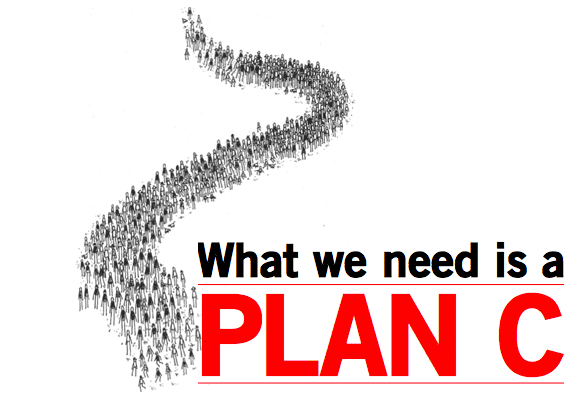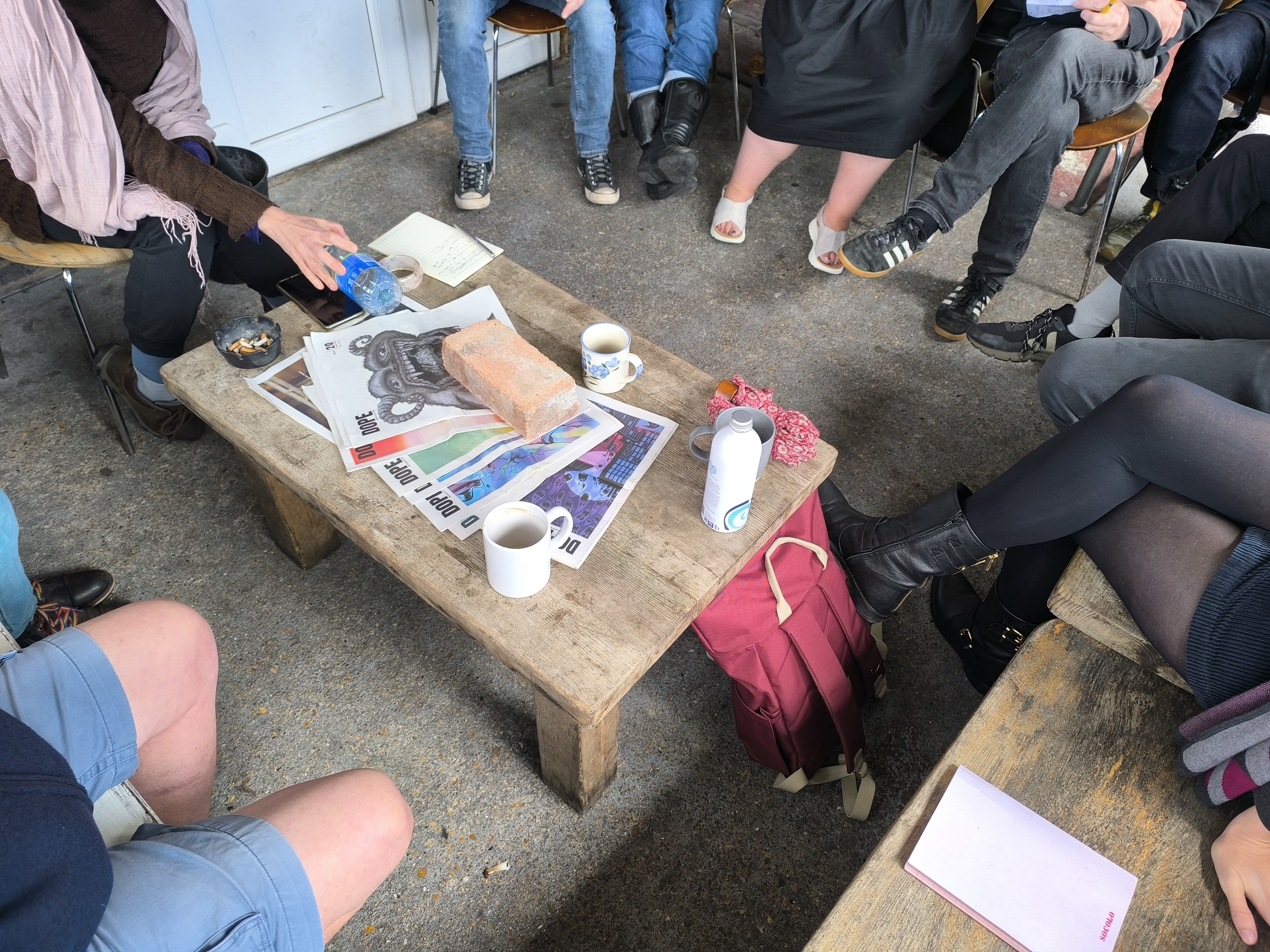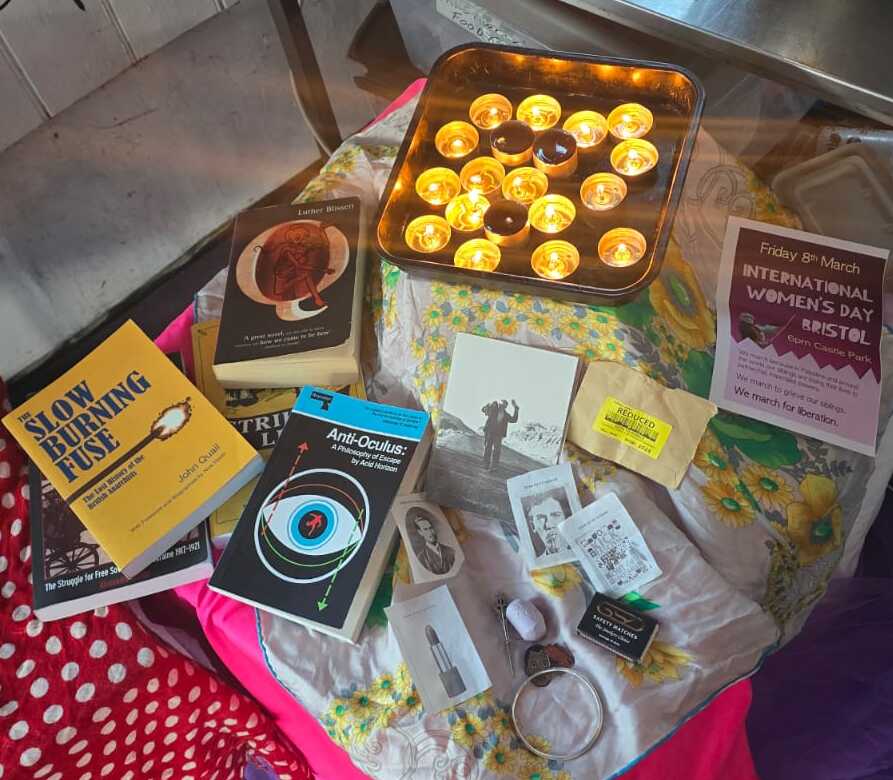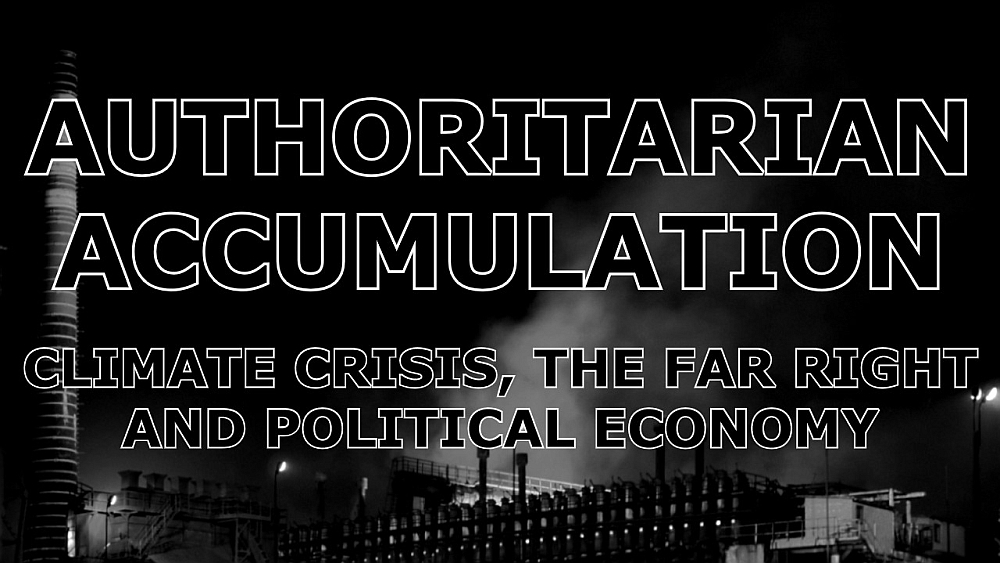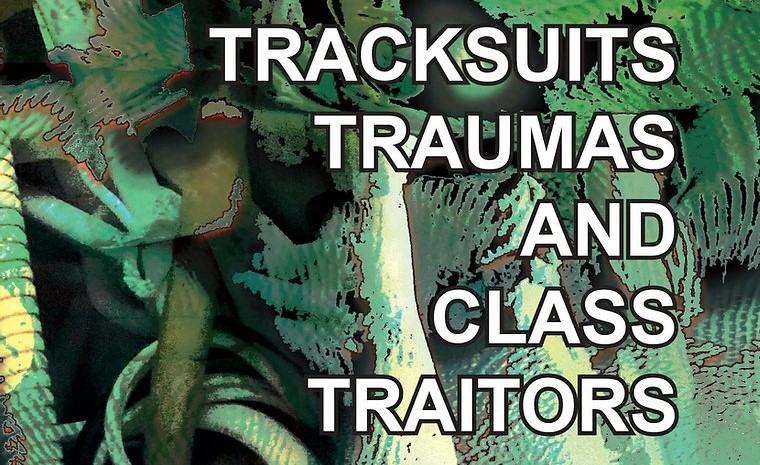Part three of the publication that Plan C distributed in London on the October 20th TUC March.
This is a multiple pile up: an economic crisis, an ecological crisis, an energy crisis, and a food crisis. This isn’t business as usual, lives are shifting, states are failing. Six years into a global economic crisis we are suffering the biggest drop in our living standards since World War Two and there’s no let up in sight. For the first time in almost 200 years the next generation’s lives will be significantly worse than our own — if things carry on as they are. It’s an under-statement to say the situation is serious.
At the same time, in the past few years we have witnessed a powerful upsurge in collective anger, resistance and imagination, with people across the world rising up to contest the dictatorships of authoritarian regimes and the dictatorship of the market. Yet despite moments of great strength and joy, often our protests have been unable to reach their promise of fundamental social change.
The times call for a serious shift in both our actions and our thinking to fulfil the potential for radical change that exists right now. Plan C is an attempt to respond to this call of the times
Plan C’s aim is to collectively devise plans that make the strategy of austerity more difficult, costly and ultimately impossible to implement. We’re at a point where states and the markets claim that there is no turning back from austerity. But there are ever more examples, from Portugal to Quebec, from Iceland to Peru, which show that if we’re angry enough, if we organise and disrupt business as usual, austerity becomes too costly and unstable. Plan C isn’t just about ‘objecting’ and looking for concessions within the current set up, it is about making plans – real, concrete and achievable plans – to improve the conditions of our lives.
To do so we have to go beyond ‘them’ and ‘us’. We have to tackle the way in which the work we do, our gender, our ‘sexuality’ or ‘race’, where we are from, can all determine how comfortable or difficult our lives are. Plan C isn’t just about reacting to markets and government policy; it’s about reassessing how we relate to each other. What’s the point in any plan that leaves our day-to-day reality unchallenged? We think it is crucial to find ways to make visible all the work – paid and unpaid – that it takes to keep people fed, clothed, cared for and sustained. During times of crisis, the work of keeping households and communities together and not falling through the cracks is more necessary than ever. Capital pits us against one another, divides us along the lines of gender, race and class. To overcome these divisions, we can’t simply demand that people ‘unite and fight’. Instead we have to do the work of addressing these rifts by organising and acting in ways that imagine and create a new and different social and political culture.
The economic and social project of neo-liberalism is currently in crisis, and the solutions being proposed by markets and governments are both frightening and a cause of anger. With injustice, corruption, and hypocrisy so prevalent, it is little wonder that we are enraged. The task ahead is to harness that anger and to channel it into collective and powerful opposition. To achieve this we don’t need just one organisation. We’re looking to create and work with others who are interested in creating forms of organisation and political visions are appropriate to our present predicament. We want to make plans together that are flexible. We need plans that we can reassess and change as conditions alter and the possibilities for political action vary.
There’s a widespread dissatisfaction with previous political movements. For the most part, these movements’ forms of organisation and action are no longer capable of making significant political gains and lack the political power to defeat austerity and reassert our own needs — as opposed to those of ‘the economy’, profit-making opportunities and a tiny elite. One of the aspects that’s most desperately missing from radical politics is strategy. The times don’t demand just one strategy but several. There can’t be one centralised homogenised way of life. It’s better to have several operative plans that broadly resonate with each other. Plan C is one part of that process of creating new strategies.
Plan C is about moving from symbolic action to actions with concrete effects on our lives. We want to reclaim collective wealth and to create and expand our collective power. From health care, education, food, water, energy, information and knowledge, the distribution of all these necessary aspects of living need to be determined democratically by the people who produce and use them.
Plan C is about daring to imagine a world not controlled by capital and then taking a leap into the unknown to put plans into action.

